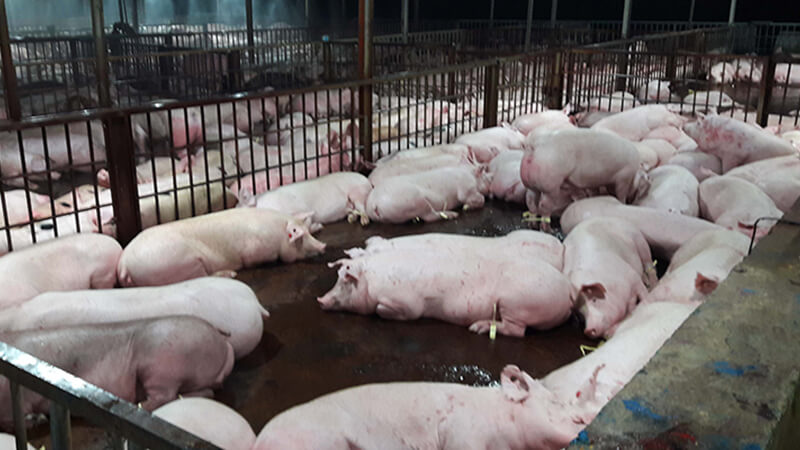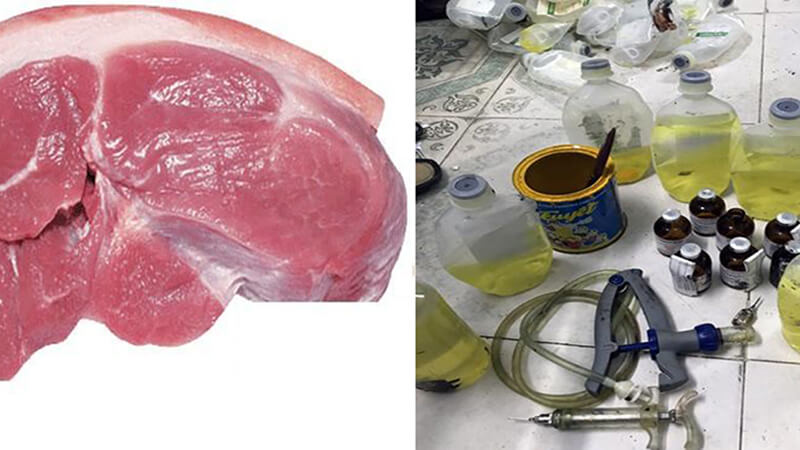Why Are Pigs Injected with Sedatives?
The sedative in question is Combistress, which contains Acepromazine and Atropine. These drugs suppress the central nervous system, preventing stress and vomiting, and are typically used as a pre-anesthetic in surgical procedures.
However, despite being banned for over two years, some pig farmers and slaughterhouses have disregarded health concerns and injected this harmful substance into their pigs for financial gain.
 Pork treated with sedatives has a bright, attractive red color.
Pork treated with sedatives has a bright, attractive red color.
The reason behind this dangerous practice is that the drug causes the meat to take on a bright red color, making it more appealing to consumers who associate this color with freshness and quality. Unknowingly, they purchase pork laced with harmful sedatives.
 Pork injected with sedatives poses a health risk.
Pork injected with sedatives poses a health risk.
What Are the Dangers of Consuming Pork Injected with Sedatives?
Guidelines recommend that pigs should not be given this type of sedative 5-7 days before slaughter. However, some farmers and slaughterhouses administer it just before transportation or slaughter to prevent fatigue or death during transit, which can be purchased at veterinary drug stores.
If injected too close to the slaughter date, the drug may not fully metabolize, leaving residues in the meat. Consumption of this contaminated pork can lead to the following serious health issues:
- Vasodilation (dilation of blood vessels)
- Low blood pressure
- Slow or difficult breathing
- Sleep disturbances
- More severe symptoms in the elderly and children
How to Distinguish Between Safe and Sedative-Injected Pork
It is challenging to differentiate between safe and sedative-injected pork by sight alone. However, there are some telltale signs to look out for:
- The meat has an unusually bright red color.
- It feels sticky and elastic to the touch, with little fat.
 How to distinguish between safe and sedative-injected pork.
How to distinguish between safe and sedative-injected pork.
Penalties for Injecting Animals with Sedatives:
According to Clause 10, Article 20 of the Government’s Decree No. 90/NĐ-CP, which stipulates administrative sanctions for violations in the field of veterinary medicine: A fine of VND 30-35 million shall be imposed for transporting, storing, or slaughtering animals for food while they are under the influence of sedatives not in accordance with the instructions of the manufacturer or the competent state agency for veterinary medicine. In addition to the fine, the establishment shall be suspended from operation for 3-6 months.
Given this information, consumers are advised to purchase pork from reputable sources, such as supermarkets and reputable grocery stores, to ensure the meat’s safety.
Related Topics:






























